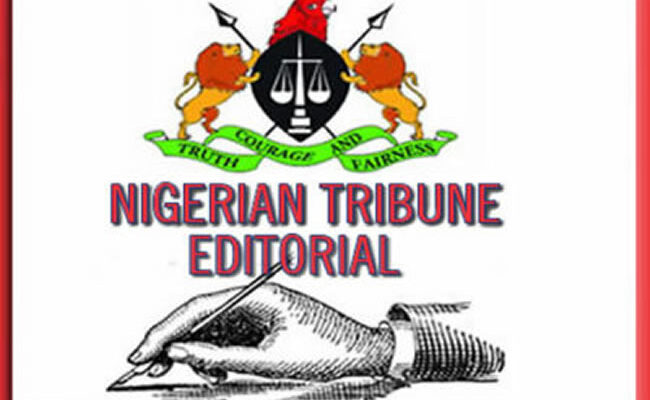

LAST week, the Manufacturers Association of Nigeria (MAN) indicated that following exchange rate volatility, rising inflation and other economic challenges that worsened the investment climate last year, 767 manufacturers shut down operations while 335 became distressed. MAN made this lamentation in response to the recently proposed Expatriate Employment Levy (EEL) by the Federal Government. According to the association, the unintended negative consequences on the manufacturing sector are humongous and cannot be accommodated at this time. It said: “The imposition of EEL poses a potential impact on the manufacturing sector and the economy at large. This will in turn mark an unwarranted and unprecedented addition to the cost of doing business in Nigeria, especially to manufacturers. The manufacturing sector is already beset with multidimensional challenges.” The statement added that capacity utilisation in the sector had declined to 56 percent amid rising interest rates and scarcity of the forex needed to import raw materials and machinery, while the inventory of unsold finished products had increased to N350 billion and real growth had dropped to 2.4 percent.
To be sure, the shutdown statistics is no surprise. In September last year, MAN disclosed that its members were groaning in pain as all the major performance indicators in the sector declined in the second quarter of 2023 (Q2’23). The association lamented that the slow recovery from the dire impact of naira crunch caused about 30 percent decrease in sales for consumer goods and cement respectively, saying its members were “groaning in pain due to these issues that are frustrating their contribution to the economy’. It said that the operating environment impacted most negatively on the activities of motor vehicles and miscellaneous assembly, which deteriorated further below the benchmark of 50 points from 48.6 to 46.7 points, and that operators were adversely affected by the exorbitant new premium rate for motor insurance and the abrupt subsidy removal which significantly worsened sales performance and increased consumers’ preference for fairly used vehicles as a result of low purchasing power. As we noted at the time, even if the association had not rolled out those damning statistics, Nigerians bearing the brunt of the unfavourable socioeconomic climate knew that the situation in the country was unfavourable and unbearable.
Although MAN did not give a sectoral breakdown of the manufacturing shutdown, it is clear that lot of workers lost their jobs. If as many as 767 manufacturers closed shop in 2023, then the terrible unemployment situation in the country has further worsened. Companies shutting down means that demand for their products declined sharply in the market and they could not survive the operating environment. This is, of course, ultimately linked to the declining disposable income of the average Nigerian as government policies, including the removal of fuel subsidy and floating of the naira, worsened the cost of living crisis across the country. This is no doubt tragic given that this is a country that must do everything in its power to attract, not destroy, jobs. We have not been persuaded to change our view that the centrality of manufacturing to the workings of any economy in providing engagement for people and supply of goods ought to have propelled the government to ensure the healthy continuation of manufacturing activities with its policies. It is a no-brainer that if manufacturers are to sustain their businesses, the government must prioritise achieving a low and stable foreign exchange rate and sustainable prices for energy rather than simply leaving matters in the hands of market forces.

In August 2022, appalled by the economic misery of Nigerians and the Federal Government’s seeming helplessness, MAN gave some suggestions for economic turnaround. It called on the Federal Government to remove the 7.5 percent Value Added Tax (VAT) on diesel, pending the normalisation of the international supply system, resolve the complexities surrounding the seamless implementation of the Eligible Customer Initiative and reduce port charges and remove demurrage for unduly delayed clearance. Further, it mandated the government to ensure that sound trade facilitation equipment such as scanners were available at the ports to improve on the time taken to clear container/cargoes, monitor the implementation of Executive Order 003 to ensure compliance by Ministries, Departments and Agencies (MDAs) and convene a strategic meeting with key operators in the Nigerian economic space to deliberate on and craft a national strategic response to the disruptive impact of the ongoing Russia-Ukraine war on the global supply value chain and its debilitating impact on the Nigerian economy. It is incumbent on the government to take a hard look at these recommendations in the light of current developments.
It is pertinent to ask what kind of economic reforms the current government prides itself on if the result is the shutting down of almost all manufacturing concerns with attendant job losses for millions of people, and the continuing reduction in production and productivity. Evidently, if all that the government wants to do is to preside over the decimation of economic activities in the country, then the people should brace themselves for more privations and suffering as nothing gets solved in any country outside of deliberate interest in production and more production. We expect the government to take the report from the manufacturers seriously and work at ending the continuing shutting down of manufacturing companies. The country should not expect to address its economic problems by digging further into crisis with the total collapse of manufacturing and production.
In this regard, although the announcement by the Federal Government that it has set aside money for manufacturers out of which each manufacturer can access as much as N1 billion is a step in the right direction, there must be a policy complement to revive dead and dying companies, arrest job losses, and put the economy back on track. Not doing so amounts to throwing money at extremely deep-seated problems.










